Shawka as the Legitimizing Element of Imarah: Siyasah in Al-Ghazali’s Conceptions
Introduction
History of Islamic political thought has been rigorous for centuries and its evidence is explicitly perceptible in the writings of Muslim scholars from early classical period. Al Ghazali, the celebrated Muslim jurist, mystic and theologian, championed in succeeding and later developing the seeds of political thought which were already visible in his formidable master Al-Juwainy. This article attempts to analyse the impact that Al-Ghazali made on classical political philosophy which maintained the necessity of having strict social order in this world by means of khilafah as the essential procedure of achieving the betterment in the coming world.
Conception of Imamah
Al-Ghazali thought that good order in this world could be achieved only if the ruling of a legitimate political power is established. People would perish to the last man if left to their own ways and if there was no accepted view to bridge their differences due to the variations in their natures, the innate diversity of their emotions, and the disagreements in their opinions. Al-Ghazali held the same views as almost everyone else in the Muslim-majority world: shared power would never provide stability since human conflict is what necessitates governmental authority in the first place. Only when there is one monarch can there be stability in political power.
So, the ideal state in Al-Ghazali’s mind was a kingdom with ultimate power vested in Sultan being the final word in the state. Otherwise, the differences in opinion will necessarily result in conflicts among people. Therefore, Al-Ghazali envisioned a monarch with full power to make rulings and implement the laws for the stability of state to be ensured. ‘If these various [governmental] functions were the responsibilities of many persons without any power to bind those persons together, the order would disintegrate. Hence, a king [malik] becomes indispensable.’
One of the major tasks of Al-Ghazali as a scholar was to convince people that the Caliph of their time Al-Mustazair was a legitimate political power and therefore he should be followed in political affairs. Despite acknowledging that Al-Mustazhir was not outstanding in religious knowledge, Al-Ghazali attempted for a convincing solution to make Abbasid caliphate stable. So, he put forth the Sunni doctrine, against Shiites, that even though it is mandatory for the Caliph to be sound in body and mind, it is not essential for him to be infallible or an expert in religious sciences. And the Caliph, in this case Al-Mustazhir, could only be replaced if it will not cause any political turmoil in the state. Otherwise, it would be sufficient if the Caliph acted on the advice of pious Ulama. Even though Al-Ghazali conceded it wasn’t an ideal state he envisioned, it was the only practical state one can think about. If not, the yearning for an ideal state will only result in civil war-torn political scenario like in the case of Bashar-al-Asad in Syria. Al-Ghazali justifies his stance by giving it a religious outlook of ‘necessity’. That means, even though the ideal state prescribed by Sharia isn’t achieved, it’s necessary that we don’t replace it with something that may lead to more chaos.
If there is a possibility of political turmoil in the state, according to Al-Ghazali, there is no way other than obeying the sultan since rebellion will cause only more losses. This proposition of ‘anything is preferable than civil war’ is based on the maxim ‘necessities overrule prohibitions’, or it is better to bear some damages than being destroyed entirely. This approach can be understood as more practical than idealistic one.
Election of Caliph
Traditional Sunni view of election of a Caliph is that he should be nominated by all Muslims, or by community leaders (ahl al-hall wa al-aqd) or by some smaller groups. But, Al-Ghazali views this doctrine as impractical. He views that allegiance of a smaller group or a single individual on behalf of everyone else is impractical. The solution he put forth is the concept of ‘Shawka’ (overwhelming military force). Al-Ghazali points out in his Ihya as follows: ‘Sovereignty nowadays is possible only through force [shawka]. The Caliph is the person to whom the possessor of force (dhu shawka) pays allegiance. Anyone who seizes power by force and is obedient to the Caliph … is a ruler wielding valid jurisdiction … in the different regions of the earth.’ Al-Ghazali’s logic is that since it may be impractical to have Caliph obeyed by people of loosening and binding or majority of Muslims, it is more accomplishable if Caliph has people with effective military force backing him up.
According to this view, even an unjust ruler has to be obeyed without question. Again, the main reason for this is caution, but it is also in line with traditional Sunni doctrine, which holds that everything is better than civil war, unless he rejects Islam. A bad ruler should be removed from power or forced to resign if he is not ready for that. ‘An evil doing and barbarous sultan, so long as he is supported by military force [shawka], so that he can only with difficulty be deposed, and that the attempt to depose him would create an endurable civil strife, must of necessity be left in possession, and obedience must be rendered to him.’
Unlike his predecessor Al-Mawardi, who viewed the Caliph as the real power politically and religiously, Al-Ghazali was into realpolitik, he emphasized that center stage of power was Sultan, the de facto ruler. Therefore, the Caliph didn’t really possess the power to have political power over sultan. This political philosophy was unique and original since Al-Ghazali does not have a forerunner, conceptualizing the realpolitik in the West or East.
Al-Ghazali introduced fiqh as the norm of government (qanun al siyasa), and he emphasized that jurist’s duty entails giving advice to sultan and working as the director of conscience to him. Basically, faqeeh is muallim (master) of sultan, then only he can help him achieve to administer and discipline men to establish order and justice in the world.
Qualities of a good Ameer
Qualities required for Ameer are mentioned in Al-Ghazali’s book ‘Nasihat al-Muluk’. He begins his advice by reminding the ruler that rulership is a gift bestowed by God and the ruler will be held accountable for it on the day of judgement. First requirement needed for a ruler is his correct faith. He counts these essential elements of correct faith in ‘roots of the tree of faith’ such as believing God is one and he is uncaused and acknowledging his Omni-potency and omni-science…and in his conduct towards people he should be guided by ten principles. The ruler must be aware of the importance of his responsibility and danger of authority entrusted to him, and he should also give immense importance to meet pious Ulama and taking advice from them.
Al-Ghazali gives a list of caliphal qualifications; six physical and four moral in Al-Mustazhiri: Physical qualifications include: 1) adulthood, 2) sanity, 3) liberty, 4) male sex, 5) Qurayshite descent, 6) sound sight and hearing. Moral qualifications include: 1) military prowess (najdah), 2) administrative competence (kifaya), 3) piety (wara’), 4) knowledge (ilm). In defense of Al-Mustazhir, Al-Ghazzali asserts that he obviously possessed necessary physical conditions and his genuine Qurayshite descent proved him to be right option for this position since genealogy claimed by Fatimids was fake. As mentioned earlier, military prowess for caliph was supplied by Turks on his behalf.
Conclusion
Al-Ghazali’s political thought emphasizing the unconditional obedience to Imam in any case, unless he apostatizes, is based on the notion of public utility (maslah ‘aamma) and the proposition of ‘anything is preferable than civil war’. This political thought which bears more practical concerns than his predecessors is strictly in line with traditional Sunni ideology. His concerns about realpolitik and Shawka diverted the way of traditional perception of political philosophy. He regarded division of labour essential for survival of society and stated that being occupied with various professions is fard kifaya (public duty) since it is needed for the wellbeing of society. Al-Ghazali maintained that if anyone engages in such an activity with pure intention of maintaining social structure of state, he would get reward of a Mujahid. He classified different occupations based on his justification of state. Unlike Al-Mawardi, who emphasized on the allegiance of people of loosening and binding (ahl al-hall wa al-aqd) to ruler as one of the essential requirements of caliphate, Al-Ghazali put forth effective political force as the criterion of caliphate; it was Seljuk Turks in the case of Al-Mustazhir. His emphasis on Shawka and prohibition of rebellion in any case basing his argument of public utility made paramount impact in upcoming jurisprudential debates about siyasa.
References
Al-Ghazali, A. (1980). Al Mustazhari (Richard J. McCarthy). Twayne Publishers. (Original work published n.d.)
Al-Ghazali, A. (1964). Counsel of Kings. (F. Bagley, Trans). London: Oxford University Press. (Originally published n.d.)
Al-Ghazali, A. (2011). Revival of religious sciences (M. Sharif, Trans). Dki: Dar Al-Kotob Al-Ilmiyah. (Original work published n.d.)
Al-Subuki, Tajudheen. (n.d.) Tabaqat shafi’yyath al Kubra. Dki: Dar Al-Kotob Al-Ilmiyah.
Black, Antony (2001). The history of Islamic political thought; From the prophet to the present. Edinburgh: Edinburgh University Press.
Muhammad, Tarek. (2008). The intellectual Greek influence on the political Islamic thought: The case of Al-Ghazali. Africa Journals online.
About the author:
Shameem UK is PG Student, Dept. Of Civilizational Studies (DHIU)
Disclaimer
The views expressed in this article are the author’s own and do not necessarily mirror Islamonweb’s editorial stance.

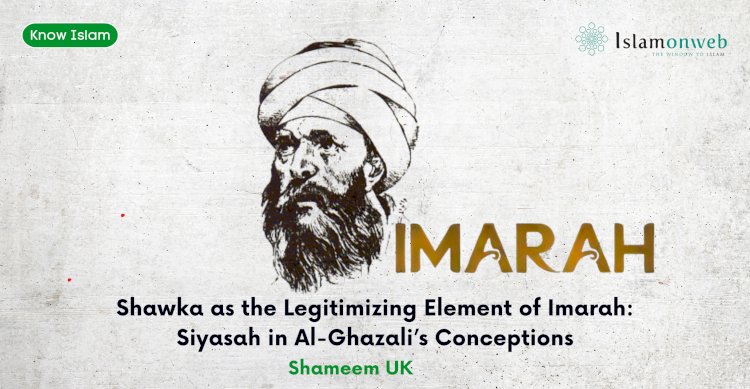


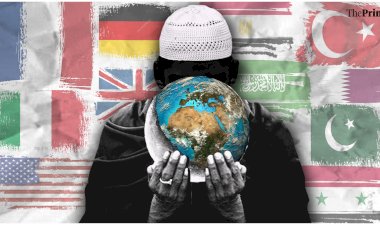

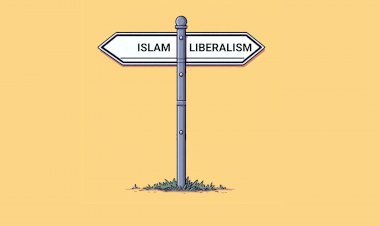
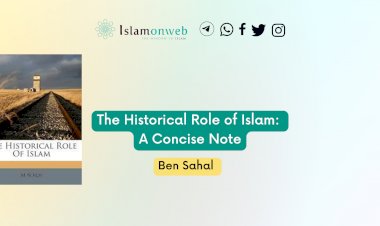

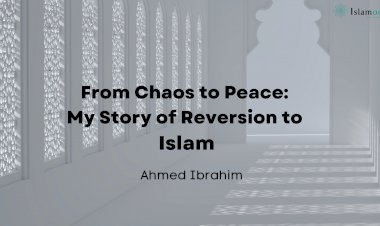














Leave A Comment